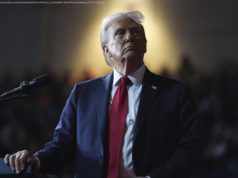What happened in M.&A., I. P. O.s and the markets during 2018.
Good Monday morning. Breaking: An NYT examination of mass shootings over the past decade reveals how the banking and credit card industry have played a crucial, if unwitting, role in the planning of these massacres. Andrew reviewed hundreds of documents including police reports, bank records and investigator notes, and lays out how the financial industry could help to prevent future attacks.
Today, we’re going to take a look back at what happened on Wall Street in 2018. The DealBook team will be taking a break until Jan. 2, so until then, happy holidays to you and yours! (Was this email forwarded to you? Sign up here .)
Companies announced a record $2.3 trillion in acquisitions through the first six months of the year, according to data from Refinitiv. That was fueled by three main factors:
• A stronger economy. After almost a decade of lackluster growth globally, the American economy appeared to be at its strongest in years and business confidence was high.
• A windfall from the tax overhaul and continued low interest rates meant that coffers were full and debt was cheap.
• Continued fears of Silicon Valley and its growing ambitions, particularly in areas like health care and the media, made consolidation look vital.
But uncertainty can bring an end to deal making. By the second half of the year, there was plenty of uncertainty. Plunging markets, an escalating trade war between the U. S. and China, signs that the global economy is slowing and the pace of the Federal Reserve’s rate increases all raised questions about the health of the world’s economy.
That weighed on corporate minds. By the second half of the year, executives had become more cautious and deal activity slowed. Just $1.6 trillion worth of deals were struck worldwide from July 1 to Dec. 21.
So approach 2018’s blockbuster M.&. A. numbers with caution, because they’re heavily skewed toward the first half of the year. Here are two examples:
• Cross-border deals hit $1.54 trillion. That’s up 33 percent from a year earlier and the highest level in more than a decade. But just $500 billion in acquisitions were announced in the second half of the year, a 50 percent drop from the first six months.
• Big deals skyrocketed. Acquirers announced 123 transactions valued at more than $5 billion in 2018, worth a total of $1.5 trillion — a 70 percent increase from 2017 and the second-highest level on record. But little more than 30 percent of those deals were announced in the second half.
And one final note of caution. If history is any indicator, peaks in deal making are not necessarily a cause for celebration: There was record M.&A. activity in 1989,2000 and 2007, and each peak was followed within months by a recession.
____________________________
Today’s DealBook Briefing was written by Andrew Ross Sorkin, Stephen Grocer and Peter Eavis in New York, and Jamie Condliffe in London.
____________________________
China retreated from the global M.&. A market. Chinese companies continued to slow their purchases of foreign firms after having embarked on a global shopping spree that peaked in 2016. The value of deals made beyond China’s borders slipped to $115 billion in 2018, down 45 percent from two years ago.
Europe slammed on the brakes. M.&A. activity in the region during the second half of the year tumbled 60 percent from the first six months, the steepest slowdown of any region in the world. Blame falls in part to a host of political issues: Britain’s tortuous path toward withdrawing from the European Union, the struggles of a populist leadership in Italy, and, most recently, a public backlash against the government in France. Economic growth has also slowed in several European countries.
This year was the strongest for initial public offerings since 2014. (That was the year Alibaba skewed the numbers with its $25 billion I. P. O.) In all, companies raised $209 billion globally through I. P. O.s, up 6 percent from a year ago, according to Dealogic.
Unicorns made waves. In the U. S., 38 companies listed on American exchanges each with a value of more than $1 billion — the most since the heady days of the dot-com boom in 2000, according to Dealogic. Those deals helped lift the value of U. S.-listed I. P. O.s to more than $61 billion.
The procession of unicorns going public could continue into 2019. The list of tech companies with $1 billion valuations looking to make their public market debut next year is long: Uber, Lyft, Airbnb, Pinterest, Slack and Palantir are among those set to embark on I.






